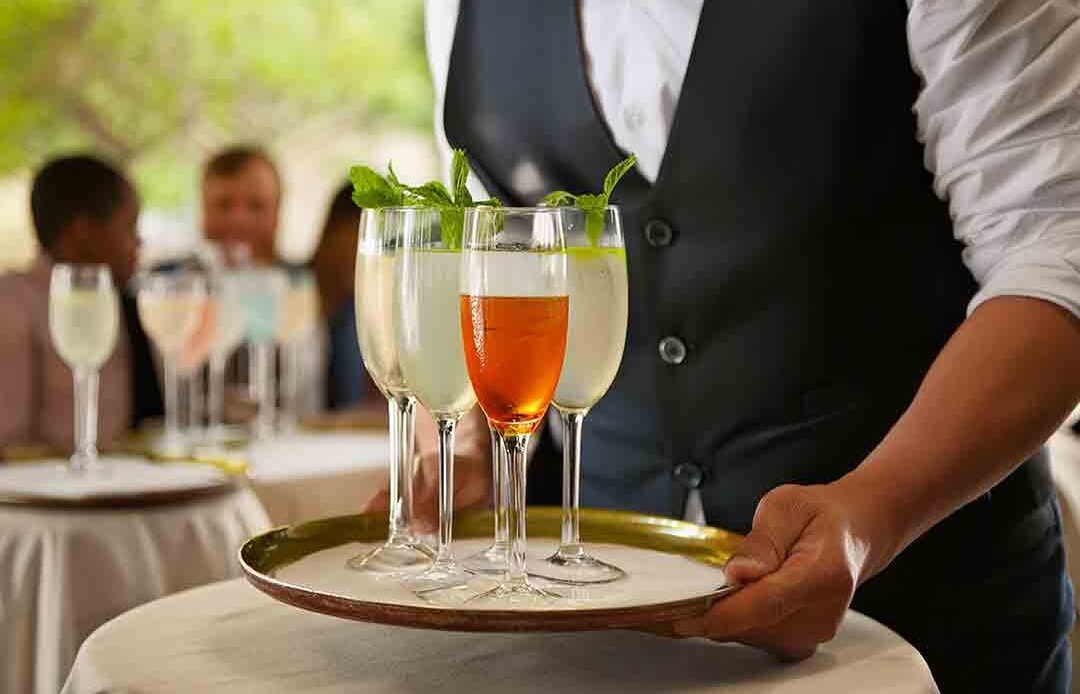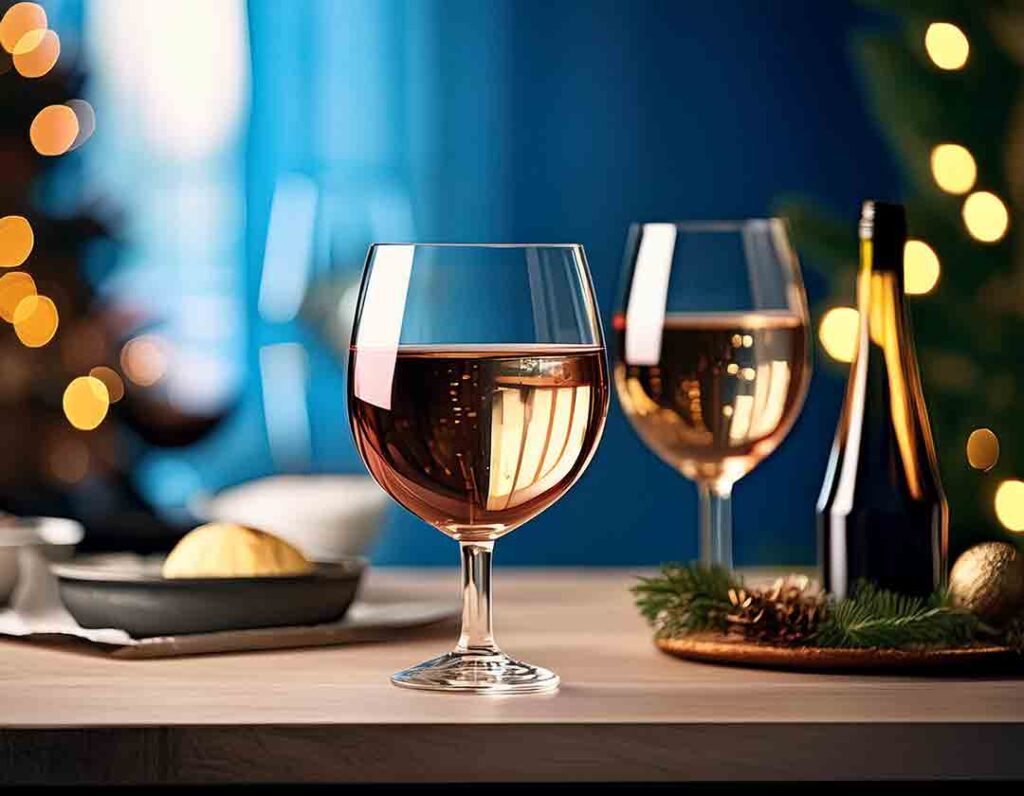
I would like to remove the mockery from “mocktails”. Join me on my Alcohol free date.
Chapter 1: The First Sip
It all began innocently enough. Seeking sophistication without the hangover, I ordered a “Virgin Faux-jito.” As I raised the glass to my lips, I imagined mint leaves dancing the cha-cha inside. But that initial sip hit me like a feather pillow: “This is basically minty water.”
Chapter 2: The Flirtation
Next came the “Phoney Negroni.” A classic Negroni, minus the gin, vermouth, and Campari. What’s left, you ask? A bitter orange juice with an existential crisis. Yet it looked stunning in its crystal glass. I gazed into its crimson depths and whispered, “You complete me… in a non-alcoholic way.”
Chapter 3: The Forbidden Love
Then there was the “No-garita Mocktail.” It wore a salted rim like it meant business. I leaned in, my heart racing. “Tell me your secrets,” I murmured. Its reply? “I’m just lime juice, agave syrup, and crushed dreams.” I swooned. We became star-crossed lovers—minus the stars and the crossing.
Chapter 4: The Breakup
Not all love stories end happily. The “Ginless Tonic” was my undoing. It bubbled like a mischievous sprite, promising refreshment. I took a sip, and my taste buds staged a revolt. “We signed up for flavor, not this bland betrayal!” they screamed. I felt like a scam artist had taken my money and left me empty-handed. I dumped the GLT unceremoniously into a potted cheese plant.
Chapter 5: The Redemption
Just when my heart couldn’t bear more disappointment, I met the “Shirley Teetotal Temple.” A ginger ale with a cherry on top. Simple, unpretentious, utterly delightful. We danced (well, I swayed) under the disco ball, and in that fuzzy embrace, I found my happy ever after.
The Rise of Alcohol free Beverages: A Sobering Trend
Why We Drink
Alcohol has long held a special place in our social and cultural rituals. From preserving drinking water for sailors to being a staple at gatherings, it’s a social lubricant. Even biblical characters got smashed by the campfire.
Why We Don’t Want To Drink
Societal norms are evolving. There’s less pressure to drink alcohol if it doesn’t suit your lifestyle or preferences. Just because you don’t want to drink it doesn’t mean you’re dead: horror hangovers are reason enough to quit. This has paved the way for the popularity of mocktails and zero-proof drinks—a new way of drinking.
The Taste Challenge
Initially, the non-alcoholic options struggled to impress the palate. My pregnant friends compare low/no-alcohol drinks to “flat tonic water opened yesterday.” They hoped the lemon slice would trick their minds into authenticity. Imitations look the part—impressive even, but taste is often the sacrificial lamb.
Shifting Focus: Substance over Style
Drink manufacturers have taken note. The trend is shifting from aesthetics to taste.
De-alcoholized wine starts out as regular wine before undergoing processes to remove the alcohol. It’s different from non-alcoholic wine which typically contains no alcohol to begin with.

Here’s how de-alcoholized wine is made:
The process begins with the fermentation of grape juice to produce traditional wine.
- Full-strength alcohol is pushed at high pressure against a filter.
- The pressure forces the alcohol and water to separate from the other elements of the wine.
- Since some flavor compounds are lost during the alcohol removal process, adjustments are made to restore flavor.
- The flavor and aroma are preserved.
- Other methods include distillation and heat evaporation.
Sommeliers report encouraging results, though they admit the wine lacks certain elements. The big one is ‘the lack of the burn’ at the back of the throat you’d experience with a regular glass of “Cab Sav”.
Non-alcoholic spirits
These also undergo a rigorous process. They use traditional botanicals but bypass the fermentation process. Even barrel aging is used to deepen the flavor complexity.
The Buzz Without the Fuzz
The Innovation doesn’t stop there. Digging deep into conversations with my alcohol-free friends, another issue raises its glass. They miss the buzz, you know, that moment when you feel warm and fuzzy in the company of your mates.
Happily, that prayer is now being answered: the introduction of adaptogens and THC. Adaptogens are a class of herbs or mushrooms believed to help the body adapt to physical and mental stressors. Traditional and Chinese medicines like Ayurveda, have been using them for centuries. (Think ashwagandha, ginseng, holy basil, reishi mushrooms.) If added to liver-friendly libations, you now have a hangover-free alternative to a night out.
Certain beverages now also incorporate measured doses of THC. This is a psychoactive compound found in cannabis. It can deliver a controlled and enjoyable buzz when consumed. (If you see the dancing camel, give him a nod.)
To create subtle euphoria without the next-day regrets, check out Nama’s Buzz Drops™. Nature’s finest offers a sophisticated buzz, you can savor the moment, clear-headed and content. Isn’t that a compelling proposition?
Addressing Price
Producing boozeless tipple requires effort and energy equal to—if not more than—regular booze. non-alcoholic wine can involve a complex, multi-country process. Producers buy wine from Spain or Italy, send it to Germany for alcohol removal, have it bottled in England, and then export it to the US. This extensive journey is no mean feat. Those bottles have more air miles than I do. Add to that the significant research and development required, it’s a challenge to offer non-alcoholic wine at a retail price below $20.
Celebrity Status
De Soi non-alcoholic apéritifs. Ever heard of them? Katy Perry. Ever heard of her? She is the name behind that brand. “Designed to foster personal and social well-being …in a refreshing way”, the aperitifs “[use] natural adaptogens … to mellow the mind”. Katy describes the flavors as “extraordinary”, while De Soi has positioned itself as a pioneer in the non-alcoholic beverage industry. Its ethos, “pleasure with restraint”, reflects the growing trend toward mindful consumption.
And having a celeb connected to your product can rarely be a bad thing. I’m thinking of Taylor Swift who named a London pub in her latest album The Tortured Poets Department. The Black Dog in Vauxhall is now having to turn people away. I wonder if they serve decent 0% alternatives there…
For people like me who’ve endured marathon hangovers, the growing popularity of abstinence drinks is a godsend. True, I may still suffer from frequent headaches, but that’ll be down to my braids being too tight.
How to Do It Yourself
As you know, our blog is dedicated to the art of creating garden-to-glass cocktails. We think social drinking should include choices for everyone, so check out our innovative ways to infuse your homemade mocktails with more flavor.
- Syrups: simple or flavored sugar syrups add sweetness and depth
- Bitters: for complexity, balance, and aroma
- Juices: Fresh / pressed from fruits or vegetables = natural sweetness, acidity
- Infusions: complexity and character
- Sodas and Carbonation: effervescence and lightness
- Creams, Milk, dairy alternatives, (almond /coconut milk): richness and luxurious texture.
- Garnishes: fruit slices, herbs, edible flowers, cocktail cherries = visual appeal and aroma.
Prediction
I predict that choosing sobriety won’t attract the clutching of pearls as it once did. The designated driver will no longer be limited to Coca-Cola or a dusty bottle of pineapple juice from the darkest corner behind the bar.
Conclusion
It’s not for me to give you relationship advice, but here’s some. The unthinkable is drinkable
Love comes in many forms and names. Faux-cocktail /zero-proof /non-alcoholic /alcohol-free /de-alcoholized /mocktail. Whether it’s a “Virgin” variation or a “No-Whiskey Sour,” embrace it. Sometimes, the best relationships are the ones that leave you sober but smiling.
Disclaimer: All characters and beverages are purely fictional. (Not Katy or Taylor of course) Please drink responsibly, even if it’s just sparkling water.


